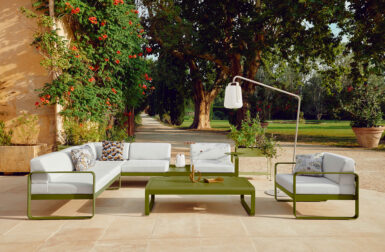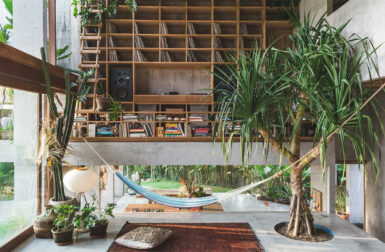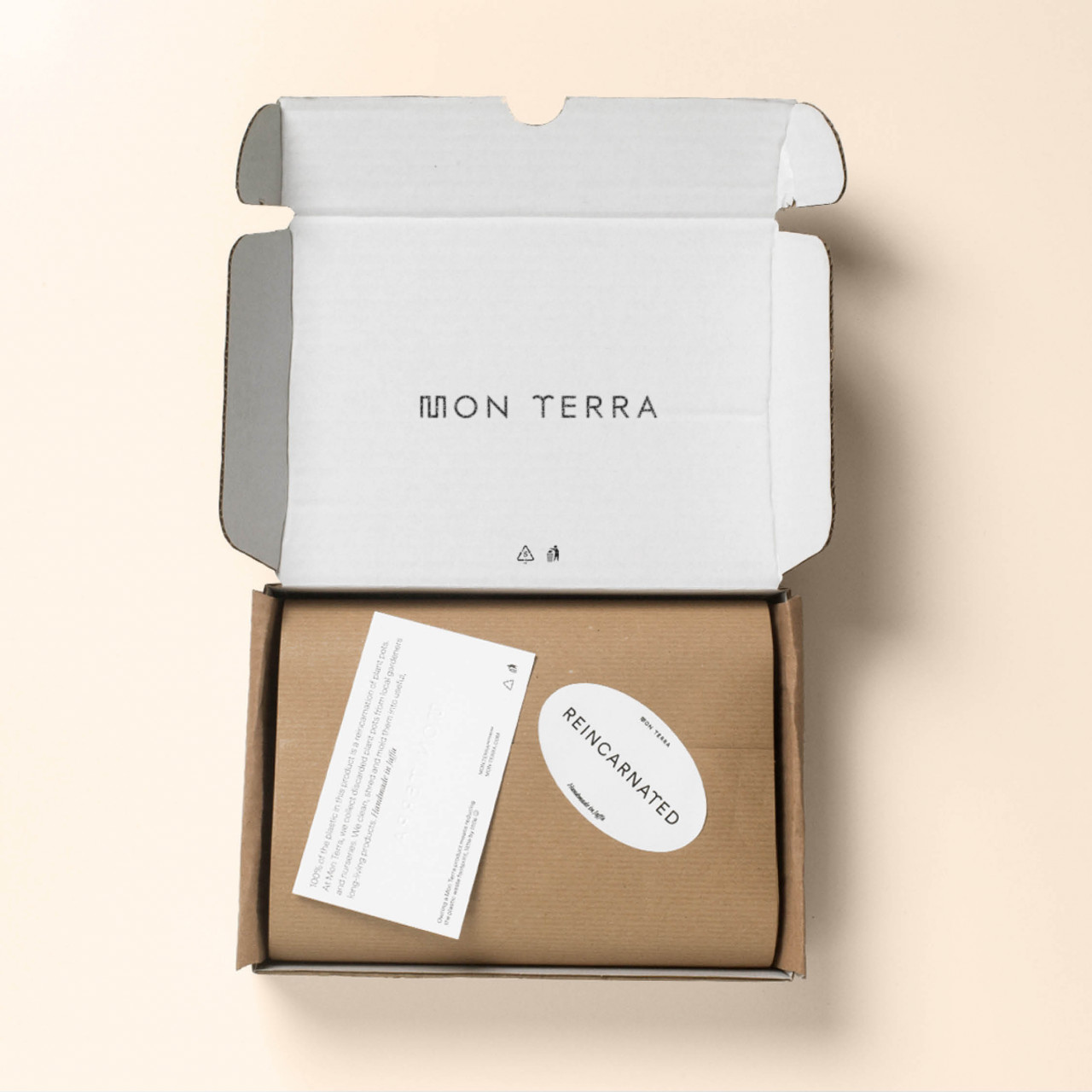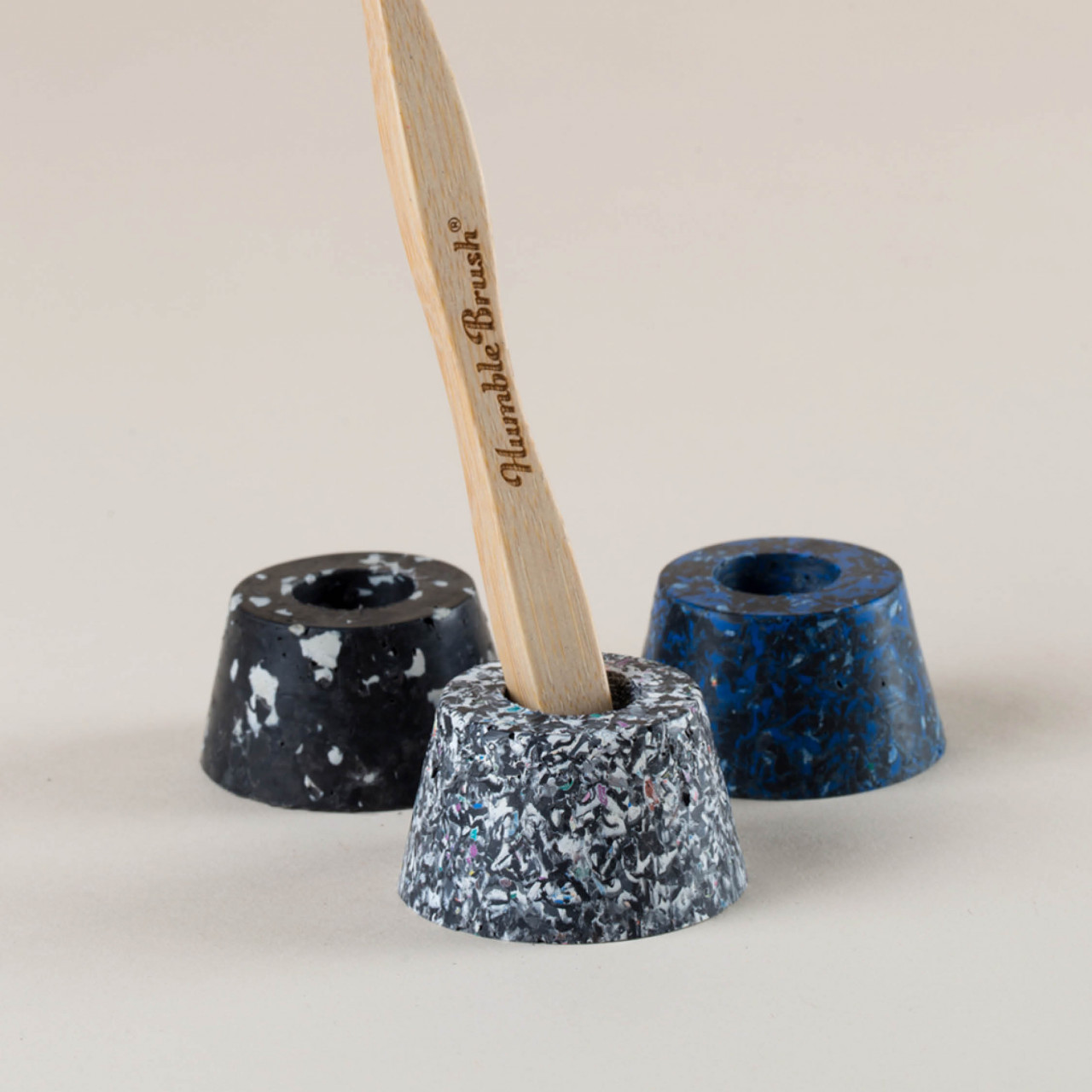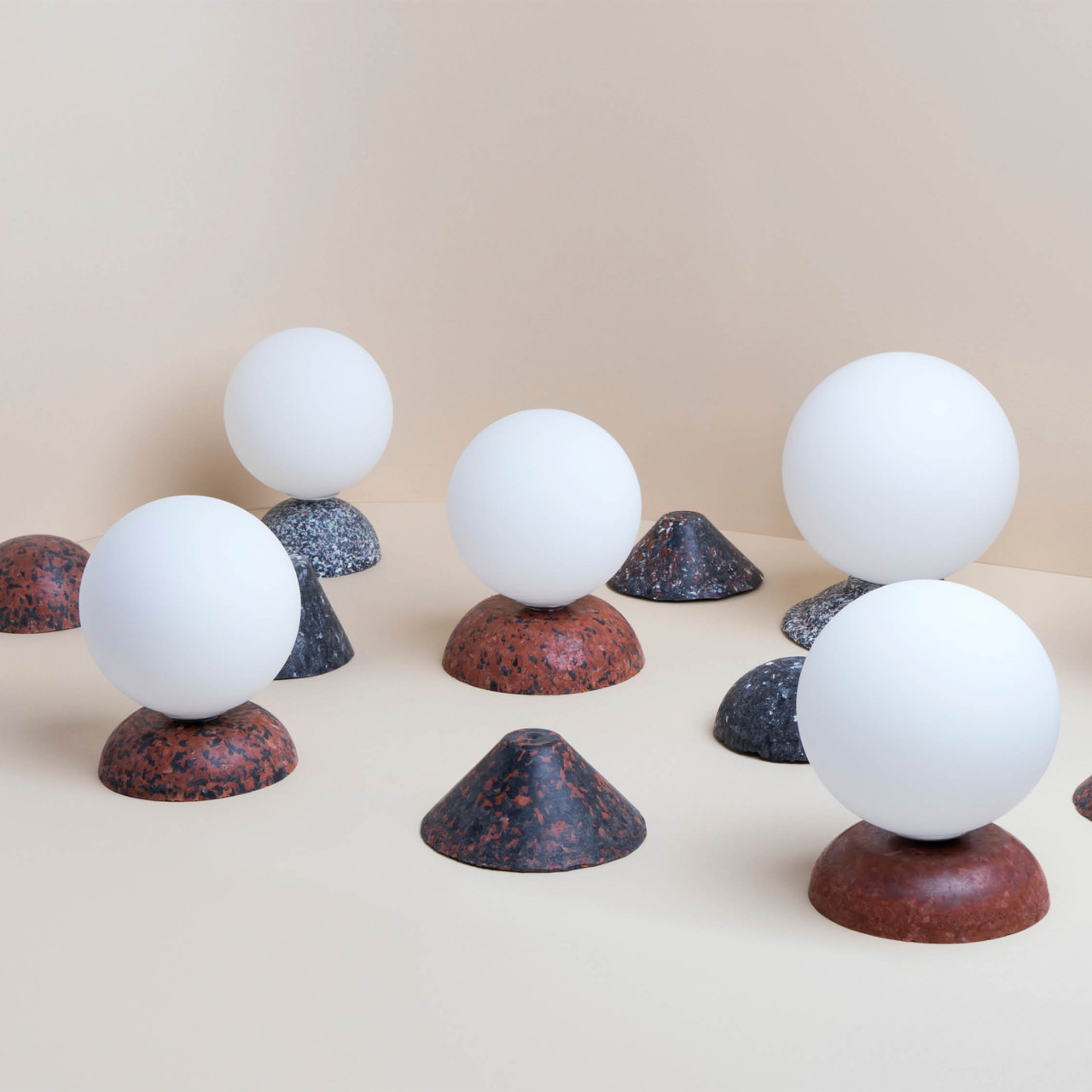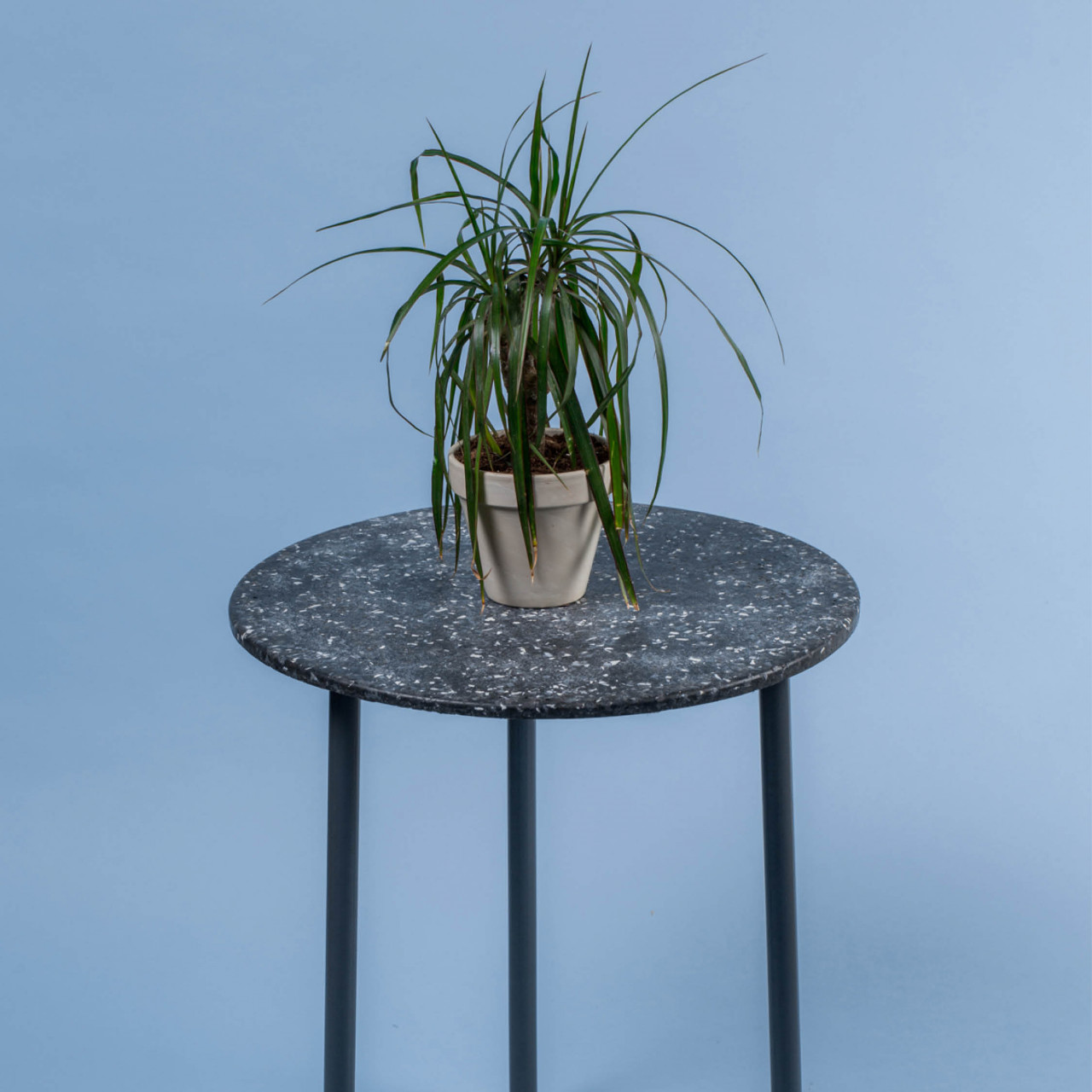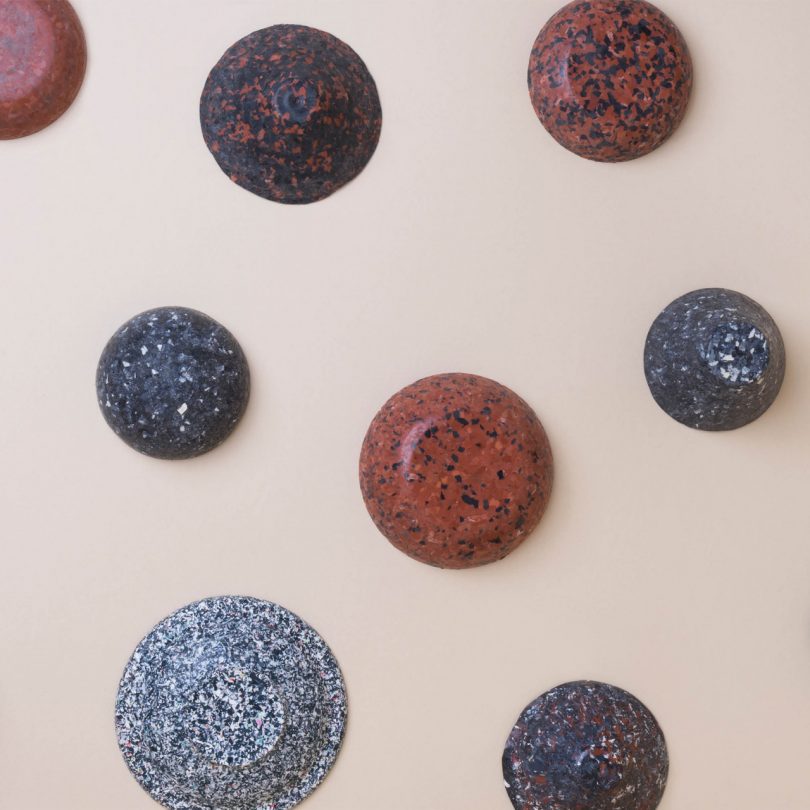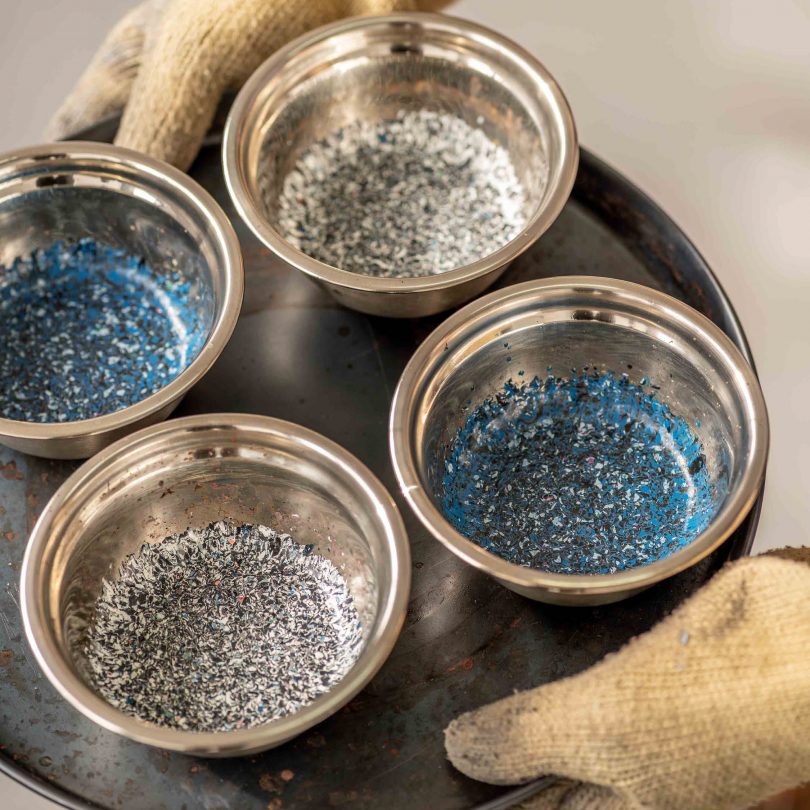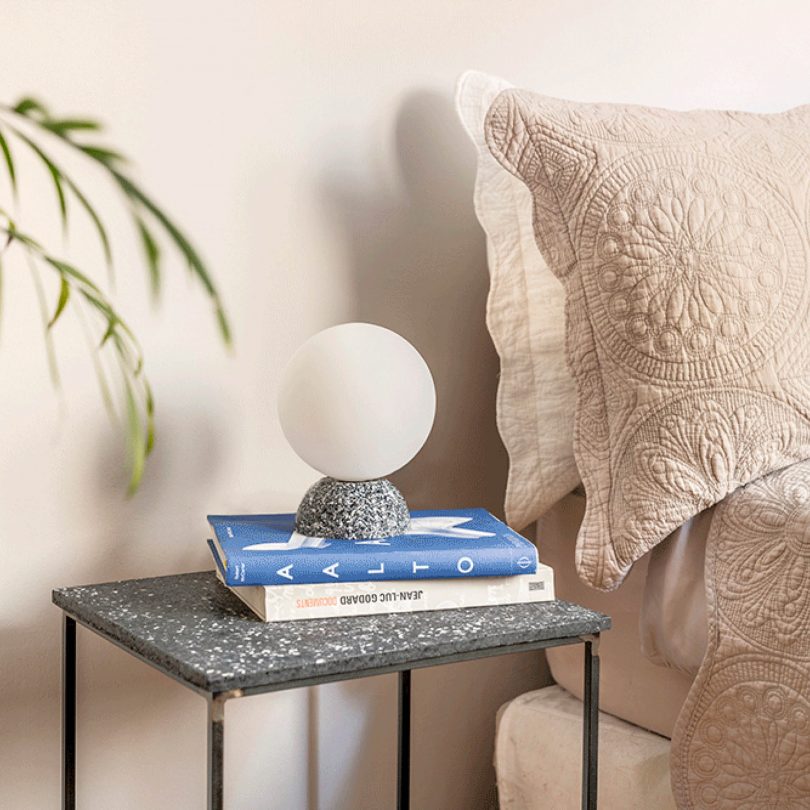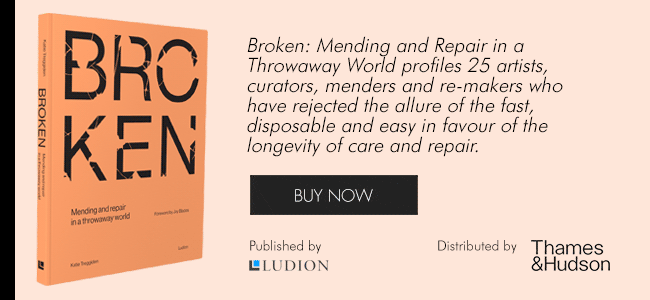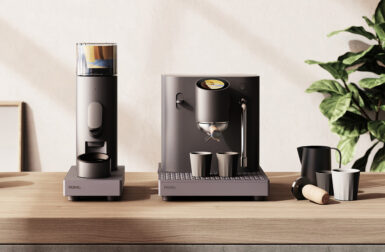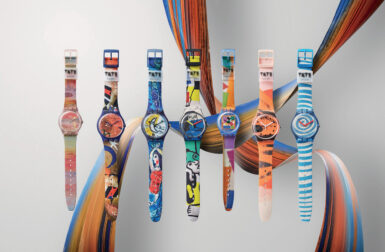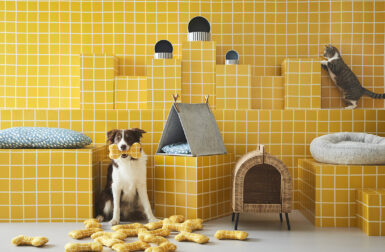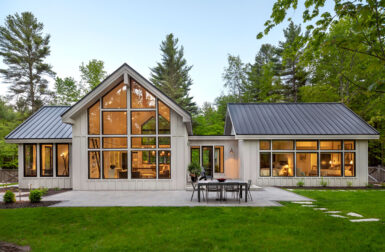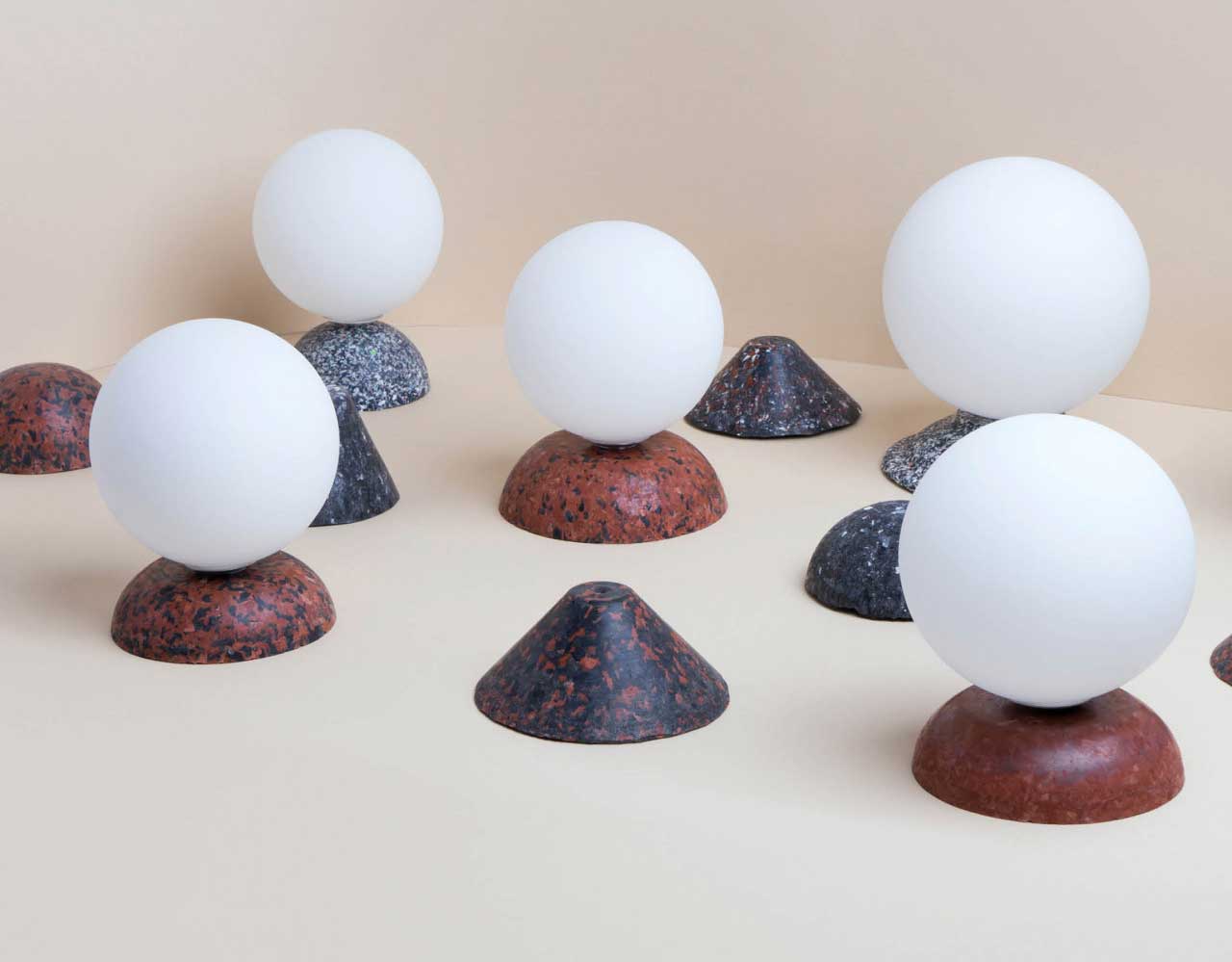
Mon Terra was founded by Tamara Efrat, a multidisciplinary designer and entrepreneur, and Yuval Dishon, a process engineer and maker. Both are from Tel-Aviv in Isreal – although they met in Boston during a three-month social entrepreneurship program and decided their shared values and complementary skillset made them a perfect match. Together, they turn agricultural plastic waste into furniture and accessories. We spoke to them to find out more.
Tell me a little bit about your childhood, education and background in terms of how you first became interested in creativity, design and sustainability.
Tamara – I studied fashion design for my bachelor’s degree and design and technology for my master’s degree. After finishing my studies, I decided to be independent and to open my own studio, where I could vision, create and most importantly collaborate with people from different disciplines. My work explores the relationship between craft and contemporary digital technology. As a designer that creates new objects, I feel it is my responsibility to take better care of the planet in terms of the materials I use, the processes I implement and the quality of the products I create. In the past year, I decided that I wanted to focus on social and environmental issues. In 2019, I flew to Boston for three very intensive months to participate in a social entrepreneurship program where I met Yuval and we founded Mon Terra together.
Yuval – Growing up, it was obvious at home that we didn’t waste water, that we didn’t purchase unnecessary things and that we recycled (back then it was only paper); it just made sense to me, but I’m not sure I understood the reasons. I have always had a passion for understanding how things work and why they are the way they are. Over time, I have become more knowledgeable about and aware of sustainability, until it has become an integral part of my being. My academic background and some of my professional background are actually in medical research and devices, but about five years ago, I joined an urban agriculture start-up. Not only was this venture important for the environment and healthy living, but working there helped me find my field of creativity: problem-solving and process development. This was a good jumping board from which to launching Mon Terra with Tamara, who has such a complementary skillset.
How would you describe your project?
Mon Terra is an ecologically committed venture addressing the issue of plastic waste produced by the agricultural industry. We collect plastic plant pots discarded by local gardeners and nurseries, then clean and shred them before using them to manufacture our products.
What inspired this project?
Seeing the huge amount of plastic waste Israel produces alone every year: over one million tons of plastic, only a quarter of which is currently being recycled. It is estimated that 26,000 tons of plastic waste are produced annually by the Israeli agricultural industry.
What waste (and other) materials are you using, how did you select those? particular materials and how do you source them?
We start the process by collecting the precious raw material – discarded polypropylene plant pots – from gardeners and nurseries.
What processes do the materials have to undergo to become the finished product?
The pots are cleaned and shredded using an industrial plastic shredder, which turns them into tiny plastic flakes. Great care is taken in shredding and stocking the different types of flakes, based on parameters such as color or quality. Although the pots are all polypropylene, they may contain different additives and therefore behave differently during the reincarnation process. The plastic is carefully weighed, placed into molds, and melted using a variety of techniques. Polypropylene’s melting temperature is rather low (130-170 degrees celsius), rendering this process relatively low-energy.
Finally, each product requires a set of post-processing steps, like drilling, wiring or sanding. During post-processing, some plastic waste is created from the raw product. This plastic is collected and reused in other products, so nothing ever goes to waste.
Each and every product is handmade by Mon Terra. This ensures that each product is of high quality, and also renders each product unique. At Mon Terra, we believe in “truth to material”, so although most of the products require some post-processing, we aspire to make as few changes as possible to the raw product – the manufacturing process is thus apparent in each product in a unique way.
When did you first become interested in using waste as raw material and what motivated this decision?
Initially, we were designing an ecological product for urban agriculturists. While researching raw materials and manufacturing facilities, we were alarmed by the magnitude of plastic waste produced by the agricultural industry, an industry crucial to our health and our environment. It became clear that we should devote our efforts to helping the agricultural industry to join the circular economy. We began collecting discarded plant pots from gardeners and nurseries, who were happy to collaborate, and then we started researching and experimenting with small-scale plastic recycling. Quite a bit of research, experimentation, trials and errors were involved in perfecting the “plastic reincarnation” process as we like to call it.
What happens to your products at the end of their life – can they go back into the circular economy?
We design and manufacture high-end and durable products so they are long-lasting, and we make them unique so our customers feel connected to them and keep them for much longer, but yes, absolutely. All our products can be recycled again when they finish their lifecycle. We constantly receive offers for collaborations with different designers and manufacturers, but unfortunately, we must turn them down as they normally propose mixing our raw material with theirs, which would render our products non-recyclable. We take great care to avoid mixing different types of thermoplastics, and therefore we currently limit our products to only polypropylene.
How did you feel the first time you saw the transformation from waste material to product/prototype?
When we first saw the transformation we were amazed! The new reincarnated material we developed looked similar to stone and marble. Honestly, it was astounding, we were expecting to recycle the plastic and hoped it would look nice, but we immediately realized we are actually upcycling. When we started posting our products on social media we also started getting many offers for collaborations from different artists and designers. When we started getting attention from large manufacturers and sellers, we realized we had managed to transform and upcycle the original material – plant pots – into a very interesting material.
How have people reacted to this project?
We get amazing responses from people around the world. People are amazed when they realize the products are not stone or marble, and even more so when they find out they are made from 100% recycled plastic. We have also been contacted by other designers, manufacturers and sellers. All this wonderful feedback has provided amazing motivation and made us realize we must be doing something right – both design-wise and in terms of the environment.
How do you feel opinions towards waste as a raw material are changing?
In Israel, where we come from, people are not very familiar with buying sustainable products, at least not as much as in the rest of the Western world. One of the main objectives of Mon Terra was to expose as many people as possible to the opportunities of waste utilization. We know many people envision recycled products as low quality or something they see their kids do at kindergarten, which is why it was crucial to us to develop high-end, design-led products.
What do you think the future holds for waste as a raw material?
We think waste as raw material is the future. There just isn’t any other way – our resources are diminishing quickly. This field is developing these days but not fast enough. At some point, it will become inevitable. We believe that generating less waste is key, alongside its recycling. We believe waste should stop being called ‘waste’, as it should always be raw material for other applications, and if a waste product cannot be recycled or reused – it should have been made of a different material to begin with. We believe in the numerous interesting, inspirational, intelligent circular economy ventures that are developing these days and are happy to be part of this movement.
